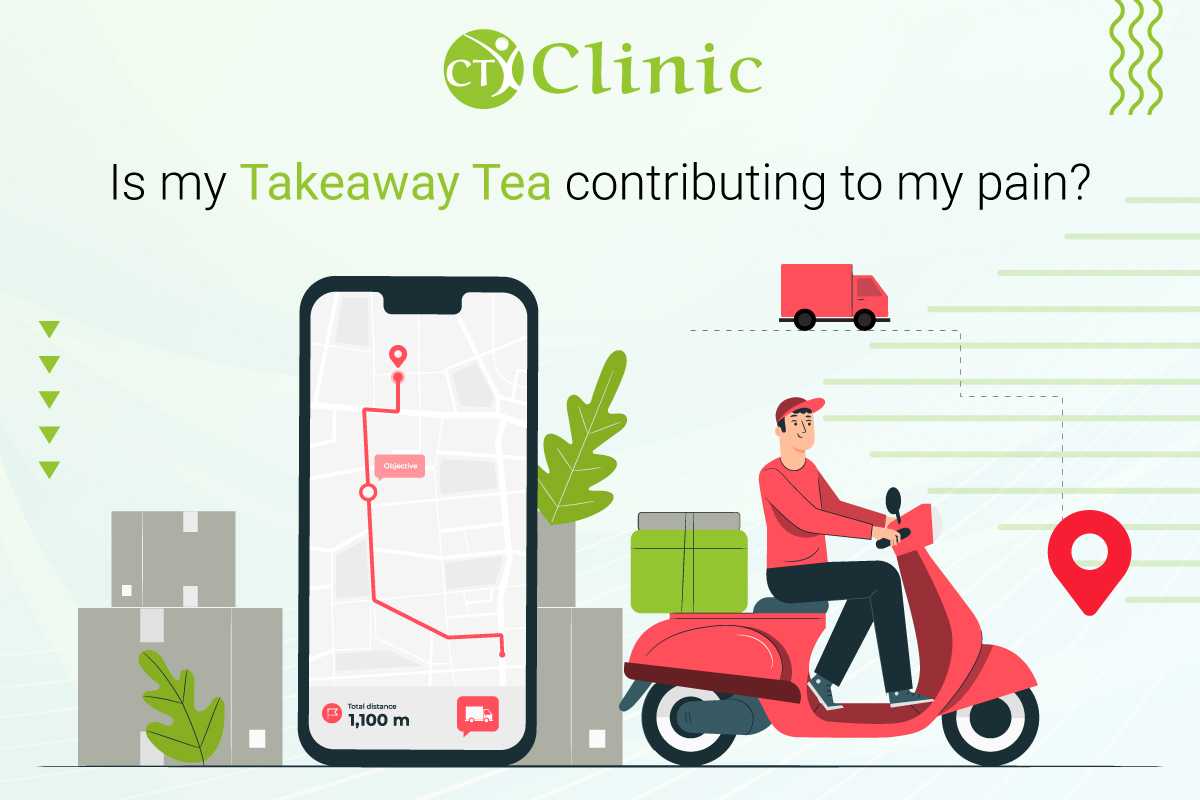Is my takeaway tea contributing to my pain?
So, we all love a takeaway once in a while, however too many of them within our diet may have a huge contributing factor to our musculoskeletal pain.
When a constant chronic inflammatory pain is paired up with a pro-inflammatory diet (large consumption of fatty foods), it may aggravate and increase symptoms of the condition. This is because fatty foods cause higher levels of inflammation than there already is within an especially painful area, triggering an immune response that affects other structures around the condition. Overall, worsening what is already there.
If we can eat for a healthy body and healthy brain, then we should not treat our muscles and joints any different and we should look after them too. By addressing the following key points, you can not only prevent pain or improve it, but you will also be reducing your risk serious health conditions.
- Manage body weight- Too much fat may put excessive pressure on the joints contributing to more pain. In addition, chronic inflammation as a result of obesity or insulin resistance can also contribute to joint deterioration.
- Controlling sugar intake- Increased insulin levels will dramatically worsen pain and therefore it is important to limit excessive sugar in fruit juices, soft drinks, sweets, etc.
- Reduce unhealthy fats- Reduce your intake of saturated fats; dairy products, biscuits and cakes. Don’t worry you can still enjoy them but just eat them in moderation to reduce the chance of worsening pain and inflammation.
- Eat healthy fats- Eating foods that contain healthy fats; fatty fish, olive oil, olives, avocados, etc, will lower inflammation, joint pain, swelling and stiffness acting as natural painkillers.
- Eat foods rich in antioxidants- This is another way of saying eat a colourful diet; blueberries, strawberries, spinach, kale, red cabbage, etc.
- Add in anti-inflammatory foods into your diet- In specific the two most effective forms of anti-inflammatory foods are garlic and onions. Bother of which have been proven to provide a pain relief like ibuprofen as they contain quercetin allowing the cells to release histamine, lowering inflammation and downregulating the pain pathway.
- Avoid nightshade vegetables as much as possible- These vegetables are typically tomatoes, potatoes, eggplant, etc as they are seen to trigger pain conditions. However, keeping a diary of what is your trigger will help you to avoid it.
- Avoid your soft drinks- They contain an artificial sweetener that activates neurons and increases the body’s sensitivity to pain.
- Address nutritional deficiencies- Vitamin D and sulphur are the predominant vitamins to speed up recovery as they activate the joins to repair.
- Identify food sensitivities- Joint pain can be a result of food intolerances, if you are suffering it would be a good idea to have a test as it may be difficult to notice the specific causation.

